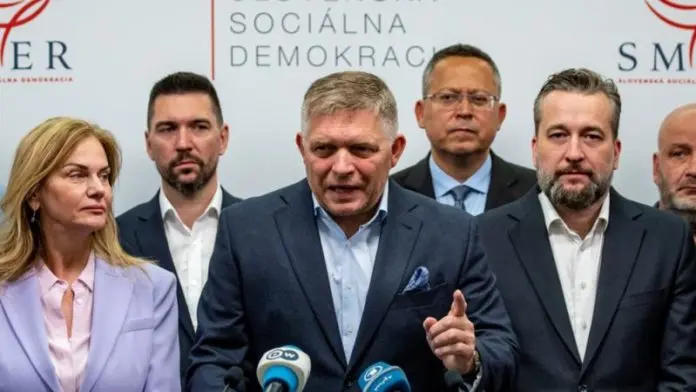- P.O. Box: 11482 Yaoundé, Cameroon; Headquarters: Efoulan, Yaoundé 3
- contact@caessinternational.org

Former Prime Minister Robert Fico, who opposes support for Ukraine, won 23% of the vote in Saturday’s election, far ahead of the pro-European centrists led by Michal Simecka. However, without an absolute majority, he will need to form alliances to govern.
During the campaign, the Smer-SD party promised to cease its support for Kyiv. Its leader, Robert Fico, also delivered anti-LGBT rhetoric. Throughout the campaign, Fico, 59, maintained a clear stance: if his party were elected, he would seek to improve relations with Russia while opposing aid to Ukraine. He vowed that Slovakia would not send “a single bullet” to Kyiv. Analysts observing the election believe that a Fico-led government could bring a major shift in Slovakia’s foreign policy, potentially aligning it more closely with Hungary and its controversial leader, Prime Minister Viktor Orban.
At a time when Viktor Orban’s Hungary seemed isolated in its opposition to aid for Ukraine, the probable shift in Slovak foreign policy signaled by Fico’s election suggests the emergence within the European Union (EU) of a bloc of states sympathetic to the Russian cause amid the ongoing war in Ukraine. While this victory for Smer-SD is a heavy blow to an EU committed to unwavering support for Ukraine, it also calls, to some extent, for a reassessment of the stance of those who, under the guise of supporting Ukraine, may be acting more like firemen who start the fires.